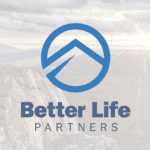Just a few generations ago when someone got sick, they didn’t go to a hospital or doctor’s office. The doctor came to them. That model of care went away decades ago. However, the lockdowns of 2020 brought it back — and just in time to feed an already growing appetite for home care. According to a Grand View Research report, demand for house calls is expected to increase the U.S. house calls market share by 5.6% in or before 2030. Mental health and recovery care are included in this forecast. So, let’s take a look at virtual care programs for addiction and see if they may be a good fit for you or your loved one.
Traditional vs. Online Recovery Programs
Once upon a time (not all that long ago), a person would have to travel to an outpatient clinic or office to attend individual or group treatment sessions. They would also get seen by a physician and prescribed medications if that was part of their treatment plan. While this may still be required in some programs like an inpatient program, there is another option for individuals with busy schedules, lack of transportation or childcare needs.
A virtual care recovery program is exactly as it sounds. It’s a recovery program that is conducted virtually through video sessions accessible over a computer or smartphone. There are no physical places where someone has to travel. There is no sitting in the same room with a counselor or even a group because everyone is gathered together online through video from wherever they may be. It is only important that you are in a space that is private enough for you to freely talk without distractions or the possibility of someone overhearing you.
Treatment in the Palm of Your Hands
It is often said that the only person you’re responsible for changing is yourself, and making positive change is all in your hands. Having a team of people to help individuals make changes will set them up for success. Online recovery treatment brings that team to those who are ready to make those changes, when they are ready. The convenience of virtual care programs for addiction treatment makes care accessible to more people and helps assuage some of the difficulties in accessing treatment like busy work or home schedules and lack of transportation or childcare.
A study published in 2022 on virtual treatment for opioid use disorder found this type of online addiction treatment to be very effective. Clients were highly satisfied with the program, began using it immediately and experienced positive clinical outcomes.
Eliminating Barriers to Care
Transportation and location are two large barriers to healthcare — as well as recovery treatment. It’s reported that 3.6 million Americans do not receive medical care due to the lack of transportation. When looking at addiction treatment, many people face barriers to access such as reliable transportation.
Even if a person has transportation, they may live in a healthcare desert — 80% of people in the United States lack adequate access to healthcare. A study conducted by Ohio State University researchers published in 2021 found there are in fact opioid addiction treatment deserts. They made this designation based on whether a person had to travel more than a mile by car or 30 minutes by public transportation. This designation makes people living in rural areas and away from a large city very frequently in a treatment desert.
Online addiction treatment eliminates these barriers. It puts treatment in the hands of anyone with access to the internet and ready to work through a recovery program.
We’re Within Reach
At Better Life Partners, we are committed to meeting our members right where they are. We offer quick and easy access to care along with a supportive community to help members achieve better outcomes. We are just one click away and make accessing the virtual even easier with text message invites that only require one click to enter a counseling session.
We’d love to share with you how we can help you or a loved one achieve recovery goals. Contact us today, so we can get started on the recovery journey.
References
Grand View Research — U.S. House Calls Market Size, Share & Trends Report
PubMed — Virtual opioid agonist treatment: Alberta’s virtual opioid dependency program and outcomes
PubMed — Virtual Care in an Outpatient Subspecialty Substance Use Disorder Treatment Program
PubMed — Traveling Towards Disease: Transportation Barriers to Health Care Access
GoodRX — Mapping Healthcare Deserts: 80% of the Country Lacks Adequate Access to Healthcare – GoodRx
PLOSONE — Opioid Treatment Deserts: Concept development and application in a US Midwestern urban county






